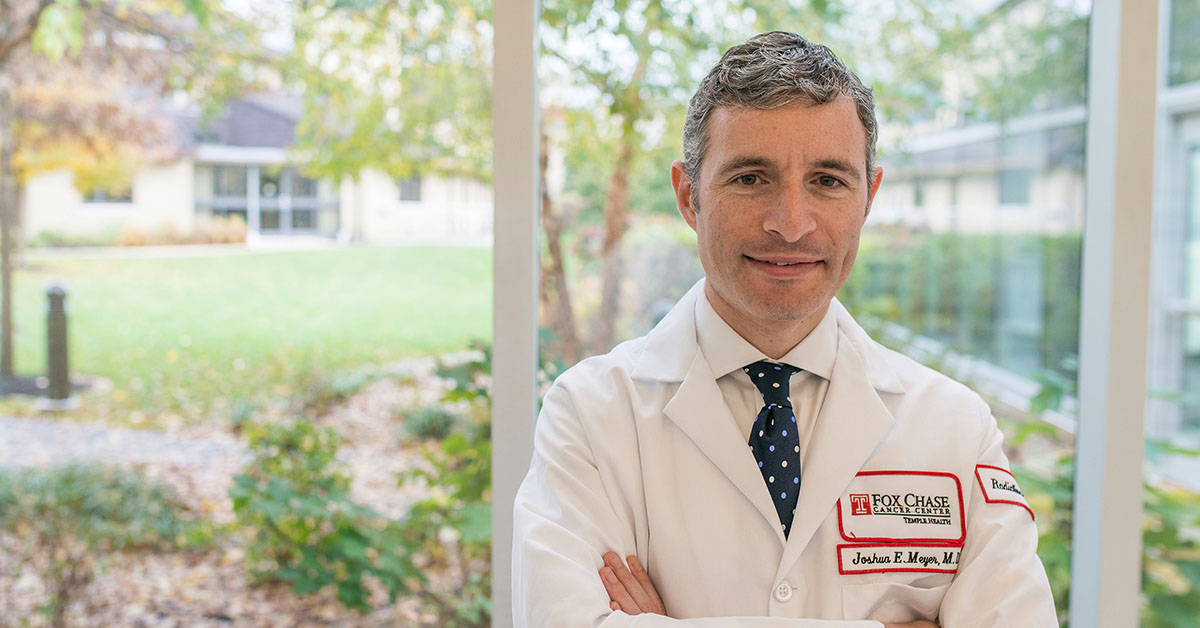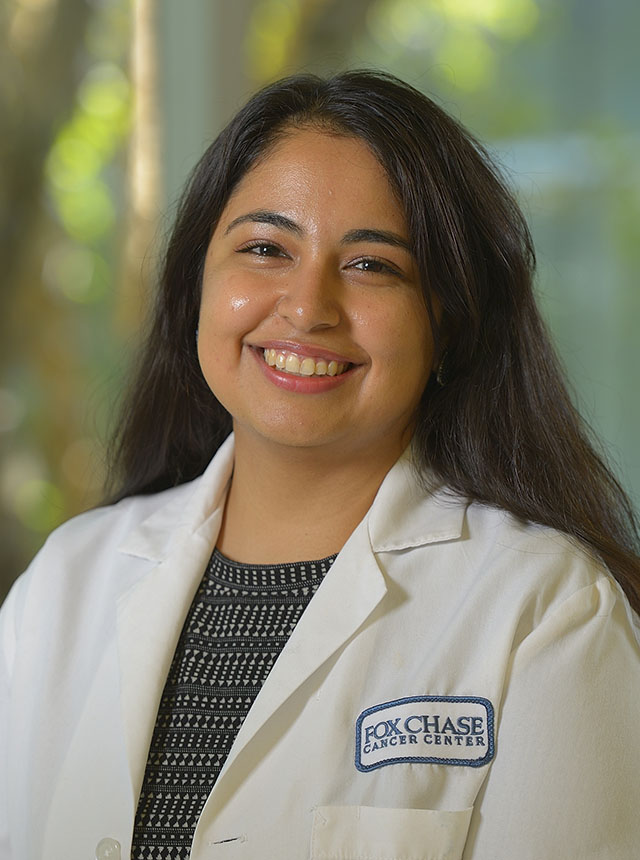
PHILADELPHIA (April 9, 2021)— During a poster session at this year’s American Association for Cancer Research (AACR) Annual Meeting Part 1, researchers at Fox Chase Cancer Center will present findings from a recent study on predicting therapy response in locally advanced rectal cancer patients.
The AACR Annual Meeting covers the latest discoveries and research across the cancer spectrum and highlights work from leading researchers. The session will focus on the use of identified biomarkers in determining how patients with locally advanced rectal cancer will respond to neoadjuvant chemoradiation. Neoadjuvant therapies like chemoradiation (nCRT) are used to treat a tumor before surgery.
“Generally speaking, locally advanced rectal cancer has been treated with chemotherapy and radiation as part of curative therapy, and that is what has been done for about 20 years in the neoadjuvant setting,” said Joshua E. Meyer, MD, co-author on the study and vice chair of Translational Research for the Department of Radiation Oncology at Fox Chase. “We know if you take a whole group of cancer patients, this treatment benefits the group, but it doesn’t benefit everyone equally.”

A significant side effect of chemoradiation is damage to nearby normal tissues. In this study, researchers reasoned that the inherent ability an individual has to react to the DNA damage from radiation may predict how they respond to chemoradiation treatment, according to Sanjeevani Arora, PhD, co-author on the study and assistant professor for the Cancer Prevention and Control Research Program at Fox Chase.
To predict this, researchers profiled blood cells from locally advanced rectal cancer patients by looking at the levels of specific proteins that were present in their cells. They then performed DNA sequencing on the blood cells to see if there were any alterations in specific genetic pathways that could predict DNA damage response capacity.
“We have identified six protein biomarkers of DNA damage response signaling that associate with nCRT response. We have also found genetic changes in genes that regulate DNA repair,” said Arora. “Specifically, single nucleotide polymorphisms in lysine modification genes that are emerging as key regulators of DNA repair.”
“Using a combined score of the six protein biomarkers of DNA damage response signaling that we have identified, we would actually be able to segregate out about 90% of the complete responders,” said Arora.
The poster session, “Biomarkers Predictive of Therapeutic Benefit,” will showcase highlights from the study, “Association of DNA Damage Response Capacity With Neoadjuvant Chemoradiation Response in Locally Advanced Rectal Cancer.” It will be presented by lead author on the study, Elena Demidova, MS, a student in the Cancer Biology Graduate Student Research Program who is currently working in Arora’s lab. The AACR Annual Meeting Part 1 will be held virtually on April 10-15, 2021.